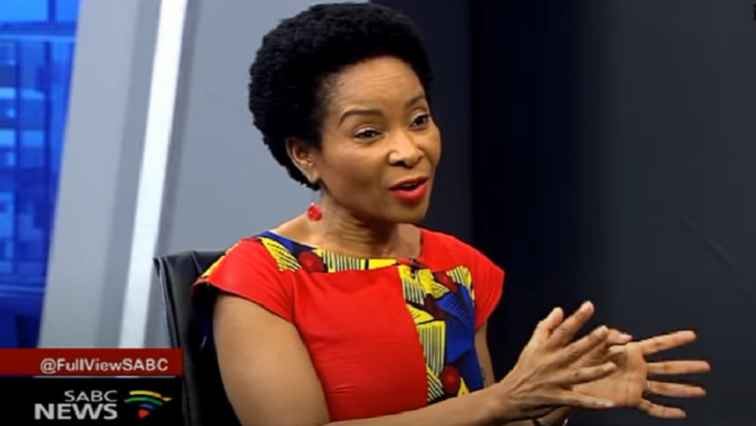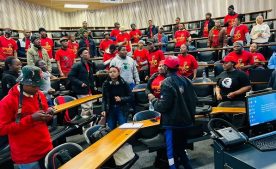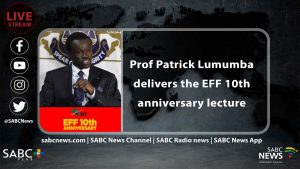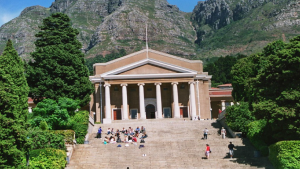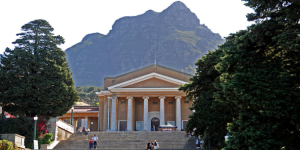South Africa celebrates Women’s Month each year to remember the more than 20 000 women who marched against the government’s pass laws in 1956. The month is also used to highlight advancements made in the development of women and to pay tribute to women who are breaking boundaries in different sectors. One such woman is the University of Cape Town Vice-Chancellor Professor Mamokgethi Phakeng. She speaks to SABC’s Lerato Matlala about her challenges under COVID-19 pandemic.
University of Cape Town’s Vice-Chancellor Mamokgethi Phakeng says the biggest challenge about operating under the coronavirus pandemic has been uncertainty. The tertiary education sector, like other sectors, has had to deal with operational challenges posed by the pandemic.
In March, when President Cyril Ramaphosa announced the lockdown to curb the spread of the virus, universities were left to come up with new ways of doing things as contact lectures were cancelled. It’s been more than 155 days since the lockdown started.
Professor Phakeng says with a pandemic where a vaccine is not yet found, there is uncertainty in the academic programme.
“ You don’t know how it is going to behave tomorrow, next week, next month. You make decisions as you go along and some of those decisions might have to change. Uncertainty in terms of how you proceed in terms of the academic programme. We want to complete the academic year 2020. We made decisions about how the second semester is going to go, many of those decisions have to approved by the senate, some have to be approved by council which does not meet everyday. So, as the pandemic changes, you have to make decisions, get approval and it may be that as soon as you get approval the ground shifts,” says Phakeng.
Phasing-in of students
This week Minister of Higher Education, Science, and Innovation Blade Nzimande announced that a maximum of 66% of students will be able to return to university campuses under Alert Level 2.
Nzimande was briefing the media virtually on the Level 2 lockdown revised regulations for the higher education sector. He said students who require laboratory and technical equipment and students who require practical placements to complete their academic year will be able to return from 1 September.
According to Phakeng, the next concern is going to be ensuring a safe environment for returning students and staff.
“The big challenge regarding staff and students is health and safety. With the lockdown being downgraded to Level 2, people have to come back to campus, staff, and students. When you bring students back, it necessitates bringing staff back. Bringing people back, you have to make sure that the environment is safe. That is just not about sanitising the place; it is also about making sure that there are no people coming in infected and end up infecting other people. So, organising sites for quarantining and then changing the rules, for example, for residences to make sure that students’ movement is regulated.”
2021 first years
The matric class of 2020 has had a difficult academic year with the disruptions brought about by the lockdown. Concerns have been raised about whether the class will be able to cover the year’s work as they prepare to go to tertiary.
Phakeng says the circumstances the class finds itself in could be better preparing them for life in tertiary.
“The opportunity is that students may come a little differently and maybe better prepared than students before because they have spent the year 2020 having to figure out learning on their own or connecting with a teacher online if they are lucky. They would have had to go through the year without much mediation by the teachers, which is something that they will have to learn, to learn to discipline themselves, to get focused irrespective of what happens in their environment. That is not a downside; that is an opportunity.”
The institution aims to use the national benchmark tests to find how exactly the students have been affected by the disruptions in learning.
“And we will then come up with strategies on how to deal with that.”
Commitment to the empowerment of women
Phakeng says she remains committed to the empowerment of women. In this regard, she founded the Mamokgethi Phakeng Scholarship. The scholarship supports African and coloured women who want to further their studies in any discipline. The first intake of students was last year and so far, two students have benefitted.
The funding comes from 10% of Professor Phakeng’s salary. “I am committed to gender equality. You cannot say that you are committed to gender equality and make it only lip service. I am putting my resources into that commitment. I need that 10% but I am going to deny myself that 10%.”
Phakeng who became the first black South African woman to get a PhD in Mathematics Education in 2002 hopes that through the scholarship more women will go on to achieve more.
The transformation of the UCT in a way that also represents women is one of the things that Professor Phakeng is proud of.
“Within two years the deanery at UCT has transformed to a point where, out of the eight, five of them are black, and out of eight, four of them are women. I think that is phenomenal. In the history of this institution, since its inception, they have never seen such a diverse team of deans.”
Below is the full interview with Professor Mamokgethi Phakeng:


